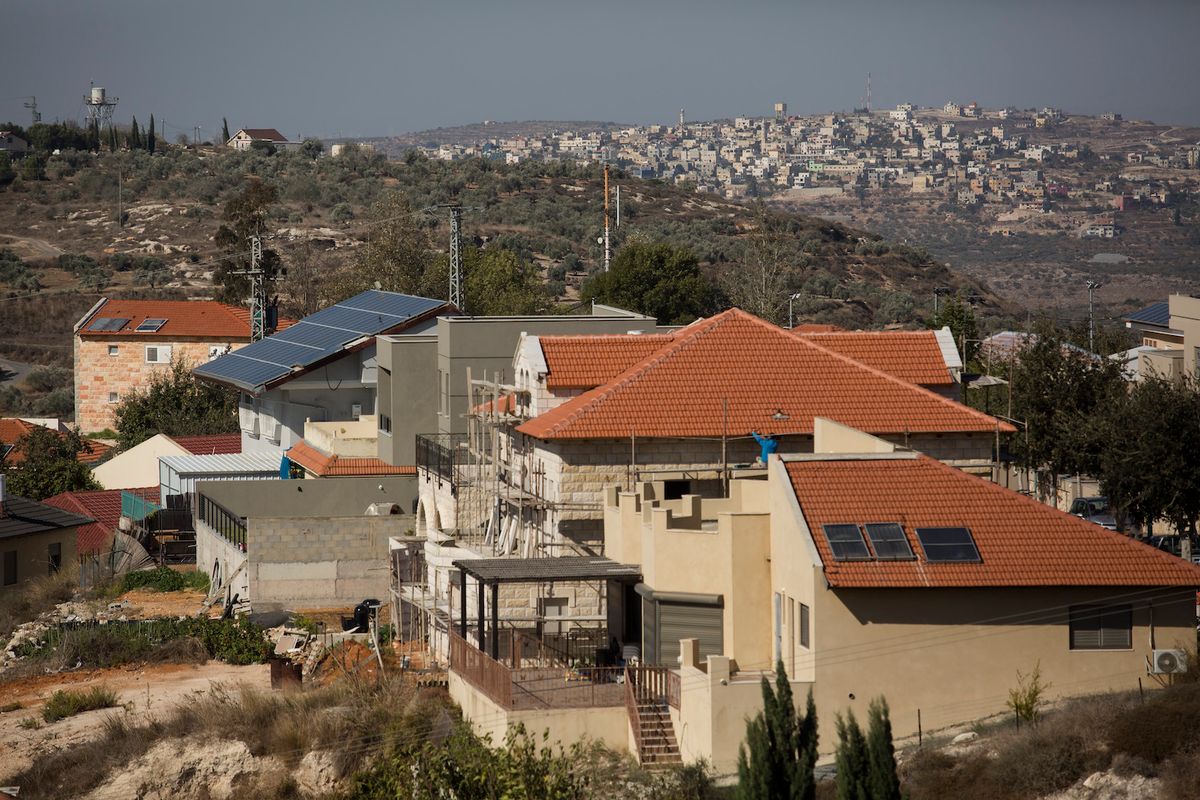Trump administration reverses long-standing U.S. policy on Israeli settlements

A few minutes every morning is all you need.
Stay up to date on the world's Headlines and Human Stories. It's fun, it's factual, it's fluff-free.
On Monday, November 18, Secretary of State Mike Pompeo announced that the U.S. no longer considers Israeli settlements in the West Bank – which the majority of the international community views as illegal as per Article 49 of the Fourth Geneva Convention – as violating international law. The announcement reverses four decades of American policy and rejects a 1978 State Department conclusion deeming the settlements “inconsistent with international law.”
The shift is the latest pro-Israel move by the Trump administration which dismays Palestinians, and breaks with international law and consensus.
Pompeo announces new U.S. position
In announcing the new policy, Pompeo said, “Calling the establishment of civilian settlements inconsistent with international law has not advanced the cause of peace.” The Secretary of State said that the new U.S. policy would not prevent Israel and Palestine from finding a solution to the peace process.
Pompeo also asserted that the United States believes Israeli courts should resolve any legal questions about West Bank settlements. He suggested that the new position could “provide the very space for Israelis and Palestinians to come together to find a political solution.”
According to Time, the announcement is the latest example of the Trump administration abandoning the United States’ traditional role in the region as a mediator, and adopting a policy that is detrimental to the Palestinian quest for statehood.
Long-standing U.S. policy
Whilst the international community has long regarded the Isreali settlements in the West Bank as illegal, the U.S. had adopted a position of compromise. Instead of outright condemnation, U.S. opposition to the settlements has varied depending on the positions of different presidents.
In 1978, the administration of former President Jimmy Carter deemed the settlements “inconsistent with international law.” Then in 1981, President Ronald Reagan said he did not believe settlements were inherently illegal.
Since then, Republican and Democratic presidents have not described the settlements as illegal. Instead, they have referred to settlements as “illegitimate.” However, in one of the final foreign policy acts of his administration, President Barack Obama broke precedent. He declined to veto a U.N. resolution urging an end to West Bank settlements.
[article_ad]
Cause of conflict
The settlements are a major obstacle to the Israeli–Palestinian peace process, a belief shared by Palestinians and other members of the international community. The settlements on the West Bank are civilian communities inhabited by Israeli citizens who are primarily of Jewish ethnicity. Israel built the settlements on lands they occupied after the 1967 Six-Day War.
Close to 600,000 Israelis live in West Bank settlements. There are also three million Palestinians living in the area, which is under the control of the Israeli security forces, according to the Palestinian Central Bureau of Statistics (PCBS).
Despite widespread condemnation, Israel disputes the assertion that the settlements are illegal under international law. The Palestinians have called for the removal of the West Bank settlements. They argue that the settlements, which are on land claimed for a future independent Palestinian state, make any future state impossible.
According to the Associated Press, the number of new settlements has risen sharply under the Trump administration. Following Trump’s election in 2016, Israel increased spending on West Bank settlement infrastructure by 39%.
Palestinian reaction
“The U.S. administration has lost its credibility to play any future role in the peace process,” said Nabil Abu Rdeneh, a spokesperson for Palestinian President Mahmoud Abbas. Palestinians say the policy shift is the latest U.S. attempt to undermine and diminish the prospect of a Palestinian state.
“You cannot have a state without territory. You cannot have a state that incorporates illegal settlements in it,” said Hanan Ashrawi, a senior Palestinian official. Ashrawi added “This is one of the most dangerous policies ever adopted by a U.S. administration. And it is an attempt to reshape and rewrite international law. It’s an egregious violation and to create a situation of perpetual conflict.”
[article_ad]
Israeli reaction
Israeli Prime Minister Benjamin Netanyahu has said that the “policy reflects a historical truth”. Netanyahu added, “Israel is deeply grateful to President Trump, Secretary Pompeo and the entire U.S. administration for their steadfast position supporting truth and justice, and calls upon all responsible countries who hope to advance peace to adopt a similar position.”
Benjamin Gantz, Netanyahu’s opponent in the Israeli elections, has also expressed his support of the announcement. “I applaud the U.S. government for its important statement, once again demonstrating its firm stance with Israel and its commitment to the security and future of the entire Middle East,” he said.
International community contests new U.S. position
Two senior European diplomats in the region have criticized the new U.S. policy. They told CNN the announcement showed contempt for international law. Rejecting four decades of U.S. policy is a “shameful decision that highlights the extent to which the Trump administration has departed from international consensus and is willing to give the finger to international law.”
The U.N. rebuked the new U.S. position, saying the settlements remain “a flagrant violation under international law.”
U.S. Embassy issues warning
Following Pompeo’s announcement, the U.S. Embassy in Jerusalem has issued a warning to Americans with travel plans in the West Bank, Jerusalem and Gaza. The embassy has warned, “Individuals and groups opposed to [Pompeo’s] announcement may target U.S. government facilities, U.S. private interests, and U.S. citizens.”
It has further advised Americans, “to maintain a high level of vigilance and take appropriate steps to increase their security awareness in light of the current environment.”
[article_ad]




Comments ()